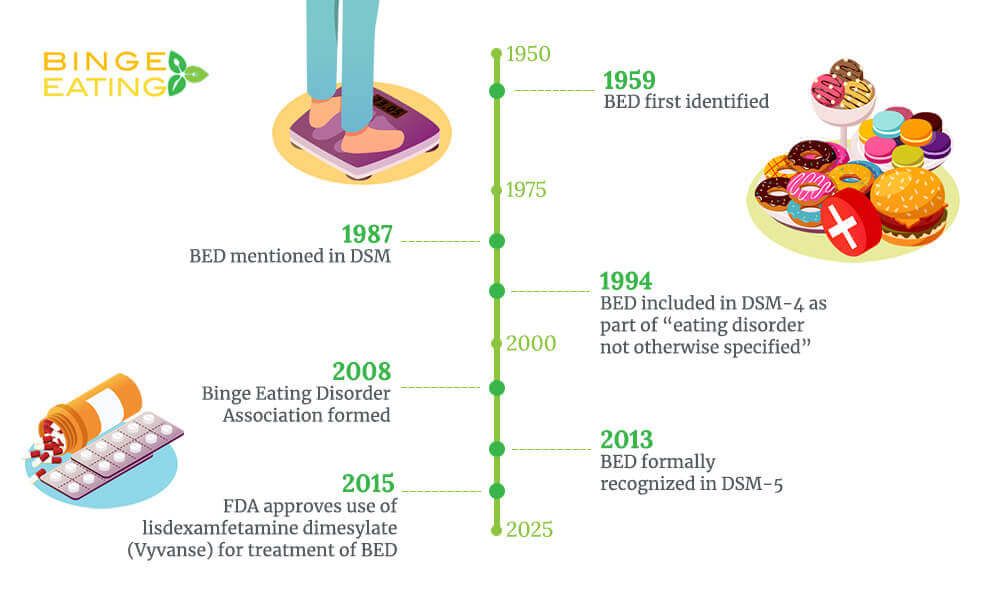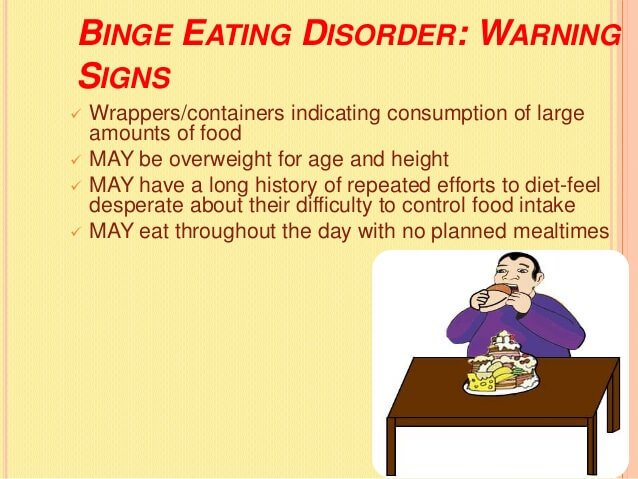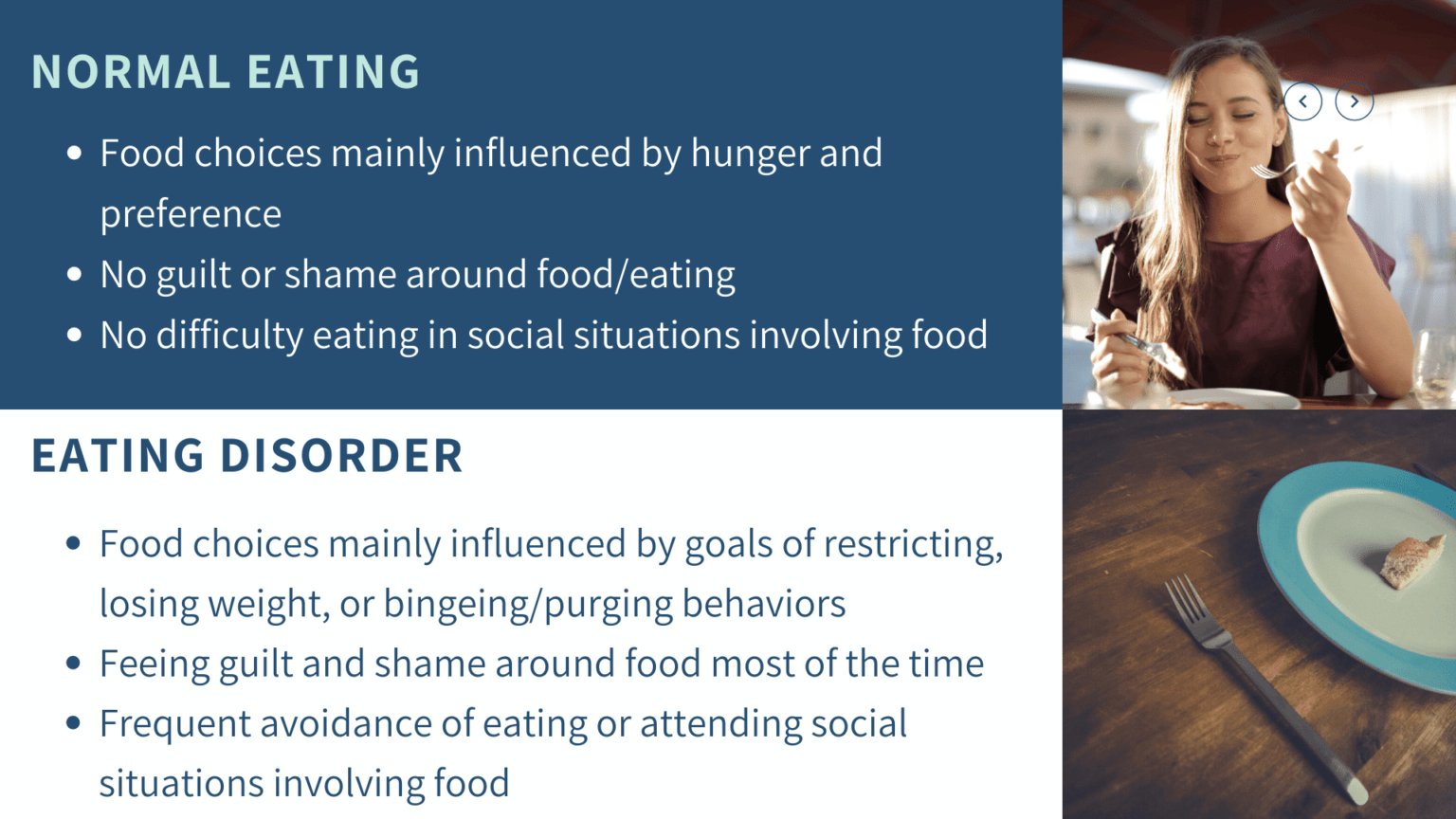Here Are Some Tips To Get You Started On Your Recovery Journey
First, schedule an appointment with your general physician. A thorough physical exam can help establish a baseline of where you are starting from. This exam is sometimes avoided by the sufferer due to feelings of shame and fear about facing the consequences created from the disordered eating.
Second, clean out your refrigerator and pantry throw away all processed and sugary foods.
Third, fill your refrigerator and pantry with a lot of healthy, whole foods.
Fourth, find a support group that you can attend and find a qualified CBT therapist.
Keep in mind, many people have recovered from binge eating disorder, and so can you.
Ilisa Kaufman, Psy.D.
Ilisa Kaufman, Psy.D, is a licensed clinical Psychologist, who practices in Miami, Florida. She specializes in the treatment of OCD, addictions, and OC related disorders. After having struggled with severe OCD herself, Dr. Kaufman created a modified version of Exposure and Response therapy which she calls RIP-R therapy. She used this therapy to get herself into recovery from OCD, and is now on a mission to help other sufferers. Dr. Kaufman has been treating OCD for 10 years now and has appeared on a multitude of media platforms discussing her treatment.
When To Seek Help
Binge eating disorder isnt an issue of self-restraint and it has nothing to do with willpower, says Dr. Carson, R.D., Ph.D., executive director of FitRX. Its a serious disease that requires treatment. And the sooner you seek help, the sooner you can start your recovery.
If you think you may have a problem with excessive overeating, especially if you find yourself losing control, reach out to a health professional right away. The best time to reach out is now.
Assuming Weight Loss Will/should Occur As A Criterion For Successful Recovery
Many people with BED reach out to health/mental-health providers, saying, I want to lose weight. And many people with BED are told that they need to lose weight. Given cultural pressures around thinness, its understandable that there is a focus on the pursuit of weight loss. At the same time, conflating weight loss with recovery from BED is counterproductive on multiple levels.
There are all kinds of myths about BED and weight. Its important to recognize that people with BED come in all shapes and sizes. There are people at higher weights who do not have BED, and there are people at lower weights who struggle with bingeing. You cannot tell if someone has an eating problem just by looking at them!
When the focus is on achieving a particular weight, people often stay trapped in the diet/binge cycle. If weight loss is the goal, then manipulating foodrather than honoring cues for hunger and fullnessbecomes the pattern. The pursuit of weight loss can include overriding hunger signals, avoiding foods perceived to be bad, and overexercising. Its important to note that these are the very same behaviors considered to be symptoms of eating disorders in lower-weight individuals. Research shows that while most plans and programs result in weight loss in the short run, the vast majority of people gain it back, with two-thirds ending up higher than their pre-diet weight, reinforcing that the pursuit of weight loss is counterproductive.
As one of my clients wrote:
References:
Also Check: Closed Depressions Are Shown By Closed Contours With Inward Pointing Hachures.
Bed Holistic Health And Weight Loss
Overweight binge eaters represent a collision of two traditional treatment worlds: eating disorders and weight control. 30-40% of those seeking weight loss treatment meet the criteria for BED. In a residential weight control treatment setting, this link between overweight/obesity and binge eating is striking. Our mean BMI is 43.3 and data suggest that 43.7 % of our participants have BED. A host of co-morbidities results from this combination of eating pathology and obesity.
What Are Behavioral Binge Eating Disorder Symptoms

Exactly what people do during a binge eating episode varies from person to personits a lot different from simply overeating at dinner. Not everyone experiences all of these symptoms, and you may have others that arent mentioned here. If you occasionally eat your breakfast in a rush to get out the door, that would not signify binge eating disorder. Its when you display multiple eating behaviors and generally feel out of control in these moments that could signal a problem.
Even so, a few behaviors stand out as binge eating disorder symptoms, according to the NEDA. They can include:
- Eating large amounts in brief periods
- Eating in a rush
- Avoiding events where people will be eating
- Eating on intense impulse, rather than on a schedule
- Restricting what you eat in public and bingeing when youre alone
- Creating lifestyle schedules or rituals around binge eating, such as avoiding activities with friends to make time for binge eating or rituals like not allowing foods to touch
- Criticizing your body cruelly and relentlessly
- Trying numerous fad diets
Don’t Miss: Phobia Of Big Words
Ways To Get Help For Binge Eating Disorder
Binge eating disorder differs from eating disorders like bulimia nervosa in that people who binge eat dont compensate for overeating by vomiting, taking laxatives, or using diuretics, says Wilkins.
Because binge eating disorder has so little public visibility, people who have it often feel invisible themselves, says Kronengold. Ive often been made to feel like my binge eating disorder doesnt matter like I dont matter, she says.
Effective treatments are available for binge eating disorder, says Wilkins. Cognitive behavioral therapy and interpersonal psychotherapy are considered especially effective, she notes, and evidence suggests that psychotherapy in general is more effective than medication. Both types of therapy typically involve 12 to 20 sessions, each lasting 50 minutes, over a period of four to five months. While people with the disorder often have multiple relapses, treatment with psychotherapy can result in long-term improvement for many.
Who Does It Affect
Globally, anorexia affects 0.4 % to 4% of all people and bulimia affects about 1% of all people. Binge-eating disorder affects up to about 2% of all people. These illnesses are more likely to affect the following groups of people:
WomenUp to 90% of people diagnosed with anorexia and bulimia are women. However, more boys and men are being diagnosed with eating disorders, and its likely that experiences of boys and men arent caught in current statistics. Binge-eating disorder is diagnosed in men and women more equally.
Young peopleAnorexia, bulimia, and binge-eating disorder often start in the teenage and young adult years, though they can also start earlier or later in life, too.
Family membersEating disorders tend to run in families, so you have a higher risk of developing an eating disorder if a close family member also has an eating disorder.
People with other mental illnessesPeople who experience an eating disorder are more likely to be diagnosed with mood disorders like depression and bipolar disorder, an anxiety disorder, a substance use disorder, or a personality disorder.
People from certain cultures or careersAnorexia and bulimia are more common among people who have jobs that depend on the way their body looks. This may include some dancers, models and athletes. Eating disorders may also be more common in cultures with strong gender stereotypesfor example, ones that idealize thin women and lean, muscular men.
You May Like: Phobia Mean
How I Tackled My Binge Eating
Growing up, dinner time equalled fun. Id race my siblings to the table and wed devour our mums homemade lasagne or curry.
But mindlessly consuming second helpings caught up with me between the ages of 14 and 16, and I put on around 3st. I was tall for my age, so it wasnt obvious, but it dented my confidence at a time when it was still being shaped.
What Causes Eating Disorders
There’s no single cause for eating disorders. Genes, environment, and stressful events all play a role. Some things can increase a person’s chance of having an eating disorder, such as:
- poor body image
- too much focus on weight or looks
- dieting at a young age
- playing sports that focus on weight
- having a family member with an eating disorder
- mental health problems such as anxiety, depression, or OCD
You May Like: Side Effects Of Prestiq
What If I Have An Eating Disorder
If you think you may have an eating disorder:
Tell someone. Tell a parent, teacher, counselor, or an adult you trust. Let them know what you’re going through. Ask them to help.
Get help early. When an eating disorder is caught early, a person has a better chance of recovery. Make an appointment with your doctor or an eating disorders specialist.
Go to all appointments. Treatment takes time and effort. Work hard to learn about yourself and your emotions. Ask questions any time you have them.
Be patient with yourself. There’s so much to learn, and change happens a little at a time. Take care of yourself and be with people who support you.
How Common Is Binge Eating Disorder And Who Is At Risk
Binge eating disorder is probably the most common eating disorder. Most people with this problem are either or ,* but normal-weight people also can have the disorder.
About 2 percent of all adults in the United States have binge eating disorder. About 10 to 15 percent of people who are mildly and who try to lose weight on their own or through commercial weight-loss programs have binge eating disorder. The disorder is even more common in people who are severely obese.
Binge eating disorder is a little more common in women than in men three women for every two men have it. The disorder affects blacks as often as whites. No one knows how often it affects people in other ethnic groups.
People who are obese and have binge eating disorder often became overweight at a younger age than those without the disorder. They might also lose and gain back weight more often.
* The 1998 NIH Clinical Guidelines on the Identification, Evaluation, and Treatment of Overweight and in Adults define overweight as a body mass index of 25 to 29.9 and obesity as a BMI of 30 or more. BMI is calculated by dividing weight by height squared.
Recommended Reading: Mayo Clinic Anxiety Disorder
How Are Eating Disorders Treated
Eating disorders are best treated by a team that includes a doctor, dietitian, and therapist. Treatment includes nutrition counseling, medical care, and talk therapy . The doctor might prescribe medicine to treat binge eating, anxiety, depression, or other mental health concerns.
The details of the treatment depend on the type of eating disorder and how severe it is. Some people are hospitalized because of extreme weight loss and medical complications.
Webinar: Understanding The Facts About Binge Eating Disorder

Presented by: Allan S Kaplan MD MSc FRCP is currently a Senior Clinician/Scientist, Chief of Research at the Center for Addiction and Mental Health in Toronto, and Vice-Chair for Research and Professor in the Department of Psychiatry, University of Toronto. He is also Director of the Institute of Medical Science, School of Graduate Studies, Faculty of Medicine. He was the inaugural Loretta Anne Rogers Chair in Eating Disorders at Toronto General Hospital and is currently Senior Scientist, Toronto General Research Institute. He received his medical, psychiatric, and graduate school training at the University of Toronto. He has worked in the field of eating disorders for 30 years, has lectured widely on various topics in the field, published 150 peer-reviewed articles, two books, 50 book chapters, and over 200 abstracts. He is the Past President of both the Academy for Eating Disorders, the largest organization of eating disorder professionals in the world and the International Eating Disorder Research Society. He has been a continuously funded peer-reviewed investigator since 1992 and has received grant support from the National Institute of Mental Health in the USA and the Canadian Institutes of Health Research in Canada.
There are also three types of therapy that can be especially helpful in the treatment of BED. These therapies are:
You May Like: Feretaphobia
Binge Eating Disorder Health Risks
The impacts that consistent binge eating episodes can have on physical health long-term are concerning. Many may discount binge eating behaviors as emotional eating, however, if left untreated, they can be incredibly dangerous and lead to the following:
- Obesity
- Increased risk of some types of cancer.
The Importance Of Deciding Not To Diet
After a binge, its only natural to feel the need to diet to compensate for overeating and to get back on track with your health. But dieting usually backfires. The deprivation and hunger that comes with strict dieting triggers food cravings and the urge to overeat.
Instead of dieting, focus on eating in moderation. Find nutritious foods that you enjoy and eat only until you feel content, not uncomfortably stuffed. Avoid banning or restricting certain foods, as this can make you crave them even more. Instead of saying I can never eat ice cream, say I will eat ice cream as an occasional treat.
You May Like: Which Organization Sets The Standards For Diagnosing Eating Disorders
Should You Try To Lose Weight If You Have Binge Eating Disorder
Losing weight may help prevent or reduce some of the health problems related to carrying excess weight. Binge eating may make it hard to lose weight and keep it off.
If you have binge eating disorder and are overweight, a weight-loss program that helps you develop a structured eating plan and address problem thoughts, particularly about eating and weight, may be helpful. Some people with binge eating disorder require treatment for their binge eating before entering a weight management program. However, some people with binge eating disorder do just as well as people who do not binge eat in behavioral treatment programs.
Talk with your health care professional about whether you should try to manage your binge eating before entering a weight management program. A licensed nutrition professional, such as a registered dietitian trained in disordered eating can help you adopt healthier eating patterns. Learn more on treatment at the National Institute of Mental Health.
What Are Common Binge Eating Disorder Risk Factors
Researchers dont know exactly what causes an eating disorder. But they do know theres a genetic link. Theyve also identified other factors that raise your risk of developing one.
For so long, we have believed disordered eating is the result of a preoccupation with the thin ideal, Dr. Goode says. It turns out theres much more to it than that. There is emerging evidence that disordered eating may also be the result of poverty, racism, perceived discrimination, and trauma.
Heres what we know so far about what causes binge eating disorder:
Also Check: What Do Ptsd Flashbacks Look Like
What Are The Treatment Options
The treatment plan for BED depends on the causes and severity of the eating disorder, as well as individual goals.
Treatment may target binge eating behaviors, excess weight, body image, mental health issues, or a combination of these.
Therapy options include cognitive behavioral therapy, interpersonal psychotherapy, dialectical behavior therapy, weight loss therapy, and medication. These may be carried out on a one-to-one basis, in a group setting, or in a self-help format.
In some people, just one type of therapy may be required, while others may need to try different combinations until they find the right fit.
A medical or mental health professional can provide advice on selecting an individual treatment plan.
Bed & Bariatric Surgery Or The Sleeve
Countless individuals struggle with Binge Eating Disorder throughout our nation though many suffer in silence due to the fears and stigmas that surround this painful disorder. A common physical effect that can result from BED is obesity, which can result from consuming a greater amount of food than is needed over time.
Also Check: What Is A Depression On A Map
Emotional Symptoms Of Binge Eating Disorder
- You feel ashamed, guilty, depressed and disgusted by yourself over how much you have eaten and your lack of self-control.
- You feel stress and fear, which stops only when you eat. However, no matter how much you eat, you never feel satisfied.
- You feel as if you are on auto-pilot while you binge eat, as though someone else is controlling you.
- You feel more sensitive towards comments about your weight, body shape, eating habits and fitness routines.
- You experience low self-esteem and low confidence.
Types Causes Signs And Symptoms Of Eating Disorders

Basic Medical Scientist | Health Research Writer | Medical Content Editor
Some people dont know there is a thing as an eating disorder, and many people with this condition go undiagnosed. The question is, how do you know if you have an eating disorder? This article talks about eating disorders, their types, causes, signs, and symptoms.
Eating disorders can affect anyone irrespective of age, gender, weight, sexual orientation, racial background or nationality. Even though this condition affects at least 9% of the global population,not much attention is given to it.
Eating disorders are classified as one of the deadliest mental health disorders, second only to opioid overdose.According to a report by Deloitte Access Economics, eating disorder causes about 10,200 deaths every year .
It will help to understand what eating disorder means, its types, causes and warning signs and symptoms of eating disorder to look out for.
Read Also: Anxiety And Burning Sensation
Medical Nutrition Therapy For Bed
Professional treatment for binge eating disorder will involve the collaboration of multiple professionals, including a therapist/counselor, medical doctor, psychiatrist, and registered dietitian. Each of these professionals works in their area of specialty to help address a concern that a person with binge eating disorder is facing.